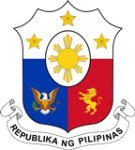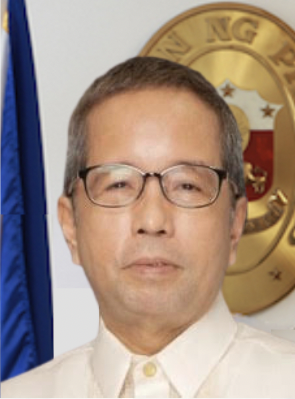1. Who can apply for a Philippine Visa?
Effective 09 August, the following shall be required to possess or secure the appropriate visas in order to be allowed entry into the Philippines:
- Foreign spouses, regardless of nationality, of Philippine citizens;
- Foreign minor children or foreign children with special needs (regardless of age) of Philippine citizens; and
- Foreign parents of minor children who are Philippine citizens or Philippine citizens with special needs regardless of age.
This requirement includes former Philippine citizens who belong to the above-mentioned categories, and are not dual citizens.
In addition to the standard requirements for a visa, foreign spouses and parents/children should show proof of marriage or filiation, together with proof of the citizenship of the Philippine spouse or parent/child and proof that the Philippine spouse or parent/child will be travelling with them or is in the Philippines.
2. What is the procedure for Balikbayans?
Effective 07 December 2020 and pursuant to Inter-Agency Task Force for the Management of Emerging Infectious Diseases (IATF-EID) Resolution No. 85, dated 26 November 2020, and with reference to Republic Act No. 6768, as amended (Balikbayan Program), the following are exempted from the temporary suspension of visa-free privileges starting 07 December 2020:
Filipino citizens’ foreign spouses and children, regardless of age, who are traveling with them; and Former Filipino citizens, together with their foreign spouses and children, regardless of age, who are traveling with them. The entry of the above-mentioned foreign nationals shall be subject to the following conditions:
(a) They must be nationals permitted/allowed to enter the country visa-free under Executive Order No. 408[1], series of 1960;
(b) They must have a pre-booked quarantine facility;
(c) They must have a pre-booked COVID-19 testing at a laboratory operating at the airport; and
(d) They are subject to the maximum capacity of inbound passengers at the port of entry and during the date of entry.
Further, the entry of the above-mentioned foreign nationals shall be subject to the implementing guidelines to be issued by the Bureau of Immigration.
3. Who owns the Philippine passport?
The passport remains at all times the property of the Philippine Government, the holder being a mere possessor thereof. The fraudulent acquisition, loss or destruction of the Passport is a crime punishable under the law, with penalties stipulated under RA 8239. The Consular Officer is authorized to determine if the applicant can apply for a passport, and what documentary evidence must be presented.
4. Who can issue a Philippine passport?
Only the Secretary of Foreign Affairs or any of his authorized consular officers may issue a Philippine passport.
5. Who can apply for a Philippine passport?
Only citizens of the Republic of the Philippines are entitled to a Philippine passport. Former Filipino Nationals who are naturalized citizens of foreign countries are no longer entitled to use or renew their Philippine passports, having lost their Philippine citizenship (Commonwealth Act No. 63 of 1936) Those who have acquired foreign citizenship by naturalization but have reacquired Philippine citizenship upon taking the oath of allegiance to the Republic of the Philippines in accordance with R.A. 9225 the “Citizenship Retention and Re-acquisition Act of 2003″ may apply for Philippine passports, if they satisfy the requirements of R.A. 8239 “The Philippine Passport Law”
In the interest of national security, public safety and public health, a consular officer may refuse to issue a passport, restrict its use, withdraw or cancel a passport.
In view of the need to determine an applicant’s current citizenship, a consular officer may require an applicant to present a valid document of foreign residency i.e., a Permanent Resident Card.
6. How long does it take to process a Philippine passport?
All passports are printed by the Department of Foreign Affairs in Manila. Regular passport applications received from Philippine Embassies/Consulates will be available from four (4) to six (6) weeks from the date of application. Applicants are advised to plan trips or interviews where they will need valid passports only after receiving the new passport.
7. Is it mandatory to renew my expired passport even though I have no plans to travel anytime soon?
No. You may renew your expired passport any time you wish.
However, we strongly recommend that you should have a valid passport with at least seven to eight (7-8) months validity prior to making any travel plans.
8. What is the validity of a Philippine passport?
In accordance with Department Order No. 010-2017 or the Implementing Rules and Regulations (IRR) of Republic Act No. 10928 (2017), the Philippine passport has a ten-year validity period, for those issued to Filipinos 18 years or older. Filipinos under 18 years will still be issued five-year valid passports.
9. My passport's validity is less than 6 months. Can I still use it to travel abroad?
No. Your passport must be at least six-months valid for you to be able to travel abroad.
However, Filipinos who are currently abroad may travel back to the Philippines even if their passport are less than 6-months valid.
10. I have valid foreign visas on my old passport. Should I have it transferred to my new one?
No. Expired and Renewed passports do not affect the validity of the foreign visas. However, you must bring your old passport with valid visas along with your new passport when travelling. When in doubt, consult the Foreign Embassy that issued your visa.
11. What are the rights and privileges that I would enjoy when I retain/re-acquire Philippine citizenship?
Once you reacquire/retain your Philippine citizenship, you will again enjoy full civil, economic and political rights and be subject to all attendant liabilities and responsibilities under existing laws of the Philippines under existing Philippine laws.
Among these rights are:
- The right to travel with a Philippine passport;
- The right to own real property in the Philippines;
- The right to engage in business and commerce as a Filipino; and
- The right to practice one’s profession, provided that a license or permit to engage in such practice is obtained from the Professional Regulation Commission (PRC), or the Supreme Court in the case of lawyers.
- You may also vote in the Philippine national elections (for President, Vice President, Senators and sectoral representatives) in accordance with the provisions of the Overseas Absentee Voting Act of 2003.
- Your foreign spouse also automatically becomes eligible for an immigrant visa.
- You will enjoy all other right and privileges enjoyed by Filipino citizens.
12. As a dual citizen, am I allowed to practice my profession in the Philippines (e.g. doctor)?
Under the law, those intending to practice their profession in the Philippines shall apply with the proper authority for a license or permit to engage in such practice. One of the requirements of the Professional Regulation Commission (PRC) is that the applicant is a dual citizen.
13. What is a civil registration?
Registration is a continuous, permanent, and compulsory recording of vital events (birth, marriage or death) occurring in the life of an individual such as birth, marriage and death, as well as all court decrees, and legal instruments affecting his civil status in appropriate registers as mandated by Act No. 3753 or the Civil Registry Law.




